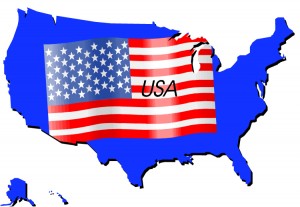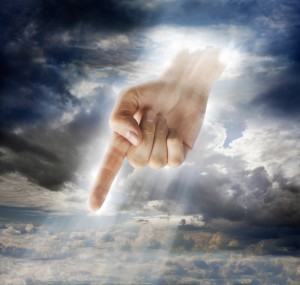Isaiah 18:1–3, In the chapter heading in some Christian Bibles, Isaiah chapter 18 is titled “Ethiopia.” Is this an accurate chapter heading? Isaiah 18:1 refers to “the land … which is beyond [on the other side of] the rivers of Ethiopia.” The traditional view among many biblical commentators (both from Christian and Jewish sources) is that this prophecy is referring to the area of modern Ethiopia, which is just south of Egypt. It is believed that the river mentioned in this passage is the Nile with its tributaries, while the ships are a reference to boats that regularly ply those waters, and the whirring wings refer to either locusts or to tsetse flies, which are abundant in that region. These same commentators offer various views on how this prophecy of Isaiah was fulfilled in ancient times. In these commentaries, no explanation was given of the meaning of the word sea in verse two and how that relates to Ethiopia, or how Ethiopia was a nation that was feared far and wide (verse 2). Perhaps another interpretation could be offered that would better fit the descriptions of the land and its people given in this prophecy.
It would be presumptuous to base our entire premise that America is in Bible prophecy on this passage alone, but united with other similar passages that speak clearly of end-time Ephraim, perhaps Isaiah 18:1–3 should be considered in this context. This is all the more plausible when we consider the fact that the scholarly views that this prophecy pertains only to ancient Ethiopia are from before the twentieth century when America was not yet a world power, and airplanes were yet to be invented. Also consider the fact that as rabbinic Jewish scholars do not know who end-time Ephraim is, so Christian scholars do not know who Ephraim is either. Neither group relates Ephraim to “Gentile” Christianity.
Now with some of these things in mind, let us take another look at Isaiah 18:1–3 and see how several well-known Bible translations render these passages.
Verse 1, This verse literally refers to “a land buzzing/whirring with wings” beyond Cush (Ethiopia, Africa), or to “clamorous wings” (ASET), or to “whirring wings” (NAS). Could this be a reference to the modern airplane and the role of aircraft in end-times America? Which nation on earth has more aircraft than America? Where was the airplane invented? What nation is the world’s leader in the aero-space industry and technology? Where can one not go in America without hearing aircraft overhead? What nation of people fly more than any other people?
Verse 2, This country sends ambassadors by sea, is a nation which has been feared from its beginning, is feared far and wide (KJV and NAS), is a powerful and oppressive nation (NAS) whose land is full of rivers meaning there are many mountains and lakes, as well—it’s a well-watered land, and it is a land where people speak a strange language. English is a very recently developed language! Additionally, America has been a mighty nation from its founding. It twice defeated the mighty British empire in the Revolutionary War and the War of 1812. America is also a land of many large and small rivers flowing out of numerous mountain ranges.
Note: This excerpt is part of a much larger work I wrote and published a few years ago entitled, “Is America in End-Times Bible Prophecy?” available at http://www.hoshanarabbah.org/pdfs/america.pdf.






